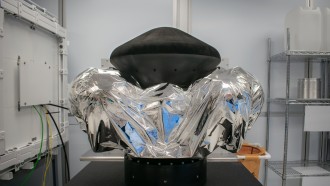One of the strongest traits that set aside humans from other species is their level of intelligence but a new study reveals that long before language and intelligence emerged, early humans developed compassion, kindness and a sense of beauty.
A new study led by Penny Spikins, from York University who specializes in human origins, undermines the idea of early humans being violent. The researcher cited the makapansgat pebble, which was discovered in a South African cave with australopithecines.
The pebble is characterized by pits and markings that make it look like the face of a baby. Spikins suggests the pebble may have been carried along by the australopithecines for several miles because this reminded them of a child.
These early humans, which lived about three million years ago, had brain that was only a third of the size of the present day humans. The researcher speculates by carrying the pebbles while travelling long distances, these early human ancestors were displaying tenderness.
The australopithecines, known to be direct ancestors of modern humans, are often depicted as "killer apes" and the fact they carried the pebble several miles back to cave suggest they have a trait that approaches tenderness.
About 1.5 million years ago, the brains of our ancestors had increased to 60 percent of the size of brains of modern humans and it is during this time when early humans learned to care for their sick. Back 450,000 years ago, our predecessors may have nursed disabled children. It was between 500,000 to as late as 150,000 years ago when human intelligence and language skills have emerged.
Spikins, whose study is detailed in her new book "How Compassion Made Us Human," also believe early humans exhibited a sense of aesthetics and this was suggested by a hand axe found at West Tofts in Norfolk that dates about 250,000 years old. It was made from a rock with a fossilized scallop shell, which was set to make it appear as the centerpiece of the tool.
The researcher said while the evolution of humans is often depicted to have been driven by intelligence followed only by empathy and deeper emotions, evidence suggests otherwise.
"Evolution made us sociable, living in groups and looking after one another, even before we had language," Spikin said. "Our success since then, including the evolution of intelligence, all sprang from that."








